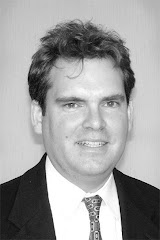Thursday, February 28, 2013
Bicameral, Bipartisan Legislation Introduced to Bring More Transparency to Federal Courtrooms
WASHINGTON – Senator Chuck Grassley and Congressman Steve King, both of Iowa, are leading an effort to bring more transparency into federal courtrooms by introducing the “Sunshine in the Courtroom Act.” The legislation allows judges at all federal court levels to open their courtrooms to television cameras and radio broadcasts.
“The federal court system is unknown to many Americans. C-SPAN’s coverage of the House and Senate has led to greater transparency of the legislative branch of government, and transparency leads to accountability. Video coverage of our courts can be a great learning tool for the American people and will contribute to a better understanding of the American judicial system,” Grassley said.
"The responsible televising of courtroom proceedings will allow Americans to better understand the important decisions that are made in the federal judiciary every day, that affect all of our lives," said King. "The Sunshine in the Courtroom Act will provide that much needed transparency by allowing Federal judges to televise coverage of proceedings in their courtrooms. This is a common sense step towards matching the overwhelming number of states that allow televising of at least some trial court proceedings, and I look forward to working with my colleagues in the Senate and the House to make this a reality."
The bicameral, bipartisan bill includes a 3-year sunset to provide Congress the opportunity to study the effects of the legislation before making any permanent changes. The bill protects the privacy and safety of non-party witnesses by giving them the right to have their faces and voices obscured, and it prohibits the televising of jurors. The bill also includes a provision to protect the due process rights of each party.
The Senate bill is being introduced with Senator Chuck Schumer, who has joined with Grassley in introducing the bill since 1999. King is joined in the House by Representatives Jason Chaffetz, Ted Deutch and Zoe Lofgren.
Since Grassley and Schumer first introduced legislation, the Chief Justice has immediately released audio of oral arguments of compelling cases. The first release came when then Chief Justice William Rehnquist allowed for the release of audio immediately following oral arguments in the Florida election matter in 2000. Since then, Chief Justice John Roberts has released audio recordings the same day of the oral arguments for more than 20 cases, including Grutter v. Bollinger, D.C. v. Heller, the Guantanamo Cases and the Citizens United Case.
Studies and surveys conducted in many states which permit some form of audio-video coverage in their courtrooms have confirmed that electronic media coverage of trials boosts public understanding of the court system without interfering with court proceedings.
Subscribe to:
Post Comments (Atom)





No comments:
Post a Comment